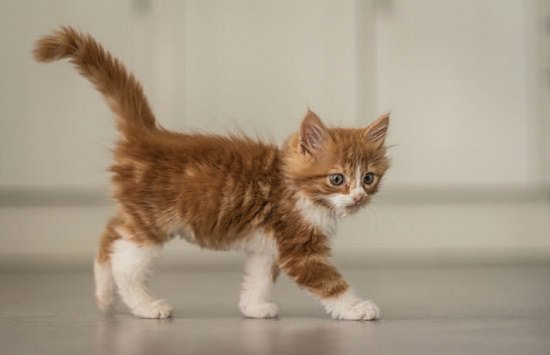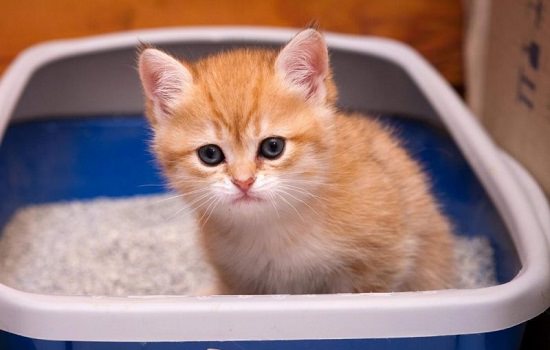If your fluffy friend is suffering from constipation and is in pain, try these home remedies for constipation in kittens to relieve the condition.

Constipation in kittens
Your feline pets need a lot of care and attention to keep them healthy. Kittens grow well on their mother’s milk, and after weaning, it is best to feed them specially formulated kitten food as advised by your vet. Kittens are prone to specific health problems, and it is best to keep an eye on them. Constipation is one such health issue that can afflict your kitten. If your kitten hasn’t defecated for 48 to 72 hours, it can be a symptom of constipation. If left untreated, it may lead to serious problems as prolonged distension of the colon can cause permanent damage. Therefore, it is imperative to identify and treat the cause of constipation at the earliest.
Symptoms
If you see your kitten straining and crying to pass a stool or the stools are dry and hard, it might be constipation. Sometimes, the feces can be covered with mucous or blood; there might be swelling and redness around the anus. Other symptoms include:
- Abdominal Discomfort
- Loss of Appetite
- Lethargy
- Vomiting, and
- Weight Loss.
Causes
- The leading cause of constipation is dehydration. When your kitten has a deficient fluid intake, it may cause stools to become stiff and dry.
- Certain foods cause inflammation of the intestines as an allergic reaction. Obesity can also cause inflammation in the intestines.
- Megacolon is a condition where the colon becomes abnormally enlarged and loses its ability to contract and expel feces.
- In some cases, pelvic injuries can cause the pelvic canal to narrow, and this can lead to problems in expelling stools.
- Other possible causes of constipation in kittens are:
- Certain congenital defects
- Diabetes
- Kidney Disease
- Hyperthyroidism
- Ruptured Anal Sacs
- Hair Mats
- Worm Infestation Blocking the Intestines
- Blockage Due to Foreign Body Ingestion
- Stress, Anxiety, and
- Litter Tray Avoidance
Home Remedies for Constipation in Kittens

1. Increase Water Intake
If dehydration is the cause of your kitten’s constipation, increase fluid consumption. Place water bowls in every room of the house and add a flavor to it which your kitten likes, like tuna or clam juice, beef broth, etc. This will entice them to drink the water. You can add water to the kitten’s food also.
2. Change Food
To determine if it is a food allergy causing the symptoms, try gradually changing the diet or the protein source like lamb or chicken. Mix new food in small quantities to the old one and offer it to your kitten.
3. Exercise
Massage your kitten’s belly and encourage them to play and run around to stimulate regular bowel movements in their intestines. Manually wipe your kitten’s rectum with a soft cloth in a circular motion to stimulate it to pass stools. Give your kitten a warm water soak while manually stimulating the rectum.
4. Increase Fiber Content
Add more fiber to your kitten’s diet like canned pumpkin or wheat bran. Fibre draws water into the intestines, adding bulk to stools and making them softer. Or have your vet prescribe a laxative for the kitten.
5. Probiotic Supplements
Give probiotic supplements after consultation with your vet to increase good gut bacteria.
6. Restrict the Kitten from Eating Foreign Particle
Do not allow it to play with anything it might accidentally ingest. Also, brush your kitten regularly to remove loose fur.
7. Change Litter Box
Try changing the litter tray because if they don’t like the litter tray or its location, they will avoid using it. Have more than one litter box; try variants till you find one which your kitten is comfortable with.
Vet Treatment
It is always advisable to consult your vet if home remedies do not show any improvement. Your vet will conduct a physical examination followed by x rays, ultrasound, blood, and urine tests. He may suggest an IV drip or a laxative. If water and fiber increase in the diet doesn’t work, then he may give an enema.
In severe cases, he might prescribe sedation and manual removal of feces. Always avoid giving an enema at home as it may cause complications. Also, do not give any medication prescribed for humans to your kitten.
